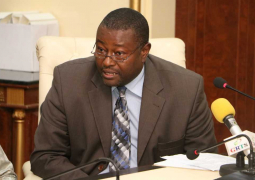
The Judicial Officers (Remuneration and Other Entitlement) Bill - a proposed Act to make provisions for the salaries, allowances, pensions and other entitlements of judicial officers and for connected matters - is one of the most the contentious bills since the ushering in of the coalition in 2017 and eventually the emergence of the government under the banner of National People's Party.
The Bill attracted widespread controversies and led to protests. Although the GBA did state that the Bill doesn't contain any provision to increase the salaries of judicial officers but rather aims to provide a structured legal framework guiding judicial officers' pay, a substantial chunk of the Gambian masses are still concerned. Some perceive it as a ploy by the elites to enrich themselves at the detriment of the poor masses, most of whom live below the poverty line and struggle to have three meals a day.
Already judicial officials are some of the highest paid in The Gambia. The Bill has been lambasted by activists, current affairs commentators, politicians and members of the wider society.
Ebrima Nyang, administrative secretary, Gambia Democratic Congress about seven months ago described the Bill, which was later rejected by the National Assembly, as "an insult to Gambians".
Conversely, however, Counsel Cham expressed that the Judicial Officers Bill "will enhance the overall efficiency of the justice delivery system, as well as preserve the integrity of judicial officers. The Independence of the Judiciary is integral to the maintenance of the rule of law and the delivery of justice".
Read Other Articles In Headlines
Jammeh's controversial return plan sparks nationwide debate
Oct 30, 2025, 11:18 AM
National Journalism Awards Committee announces judges for 2022
Oct 17, 2022, 11:38 AM



